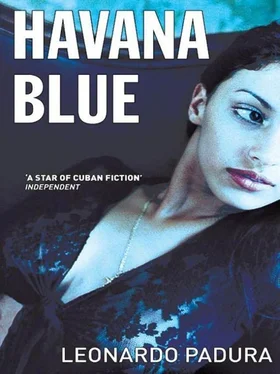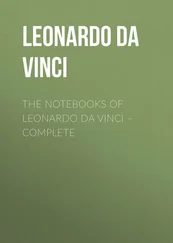What have you made of your life, Mario Conde? he asked himself daily as he attempted to reverse the time machine and one by one right his own wrongs, disappointments and excesses, anger and hatred, cast off his errant ways and find the exact point at which to begin afresh. But does it make any sense? he also wondered, now I’m almost bald, and he always responded in the same fashion: Where was I? Oh, I mustn’t be prejudiced, but the fact is I love prejudices, he muttered as he rang Manolo.
The story was called “Sundays” and it was a true story, autobiographical to boot. It began one Sunday morning when my character’s mum (my mum) woke him up, “Up you get, my boy, it’s half past seven”, and he understood how on that particular morning he couldn’t eat breakfast or stay a bit longer in bed or play baseball later, because it was Sunday and he had to go to church, as he did every Sunday, while his friends (“they’ll all perish in hell,” said his/my mother) spent the only morning when there was no school dossing around the barrio and organizing handball or baseball games in the alley on the corner or on the wasteland by the quarry. I felt very anticlerical, I’d read Boccaccio and in the Prologue they’d explained what it meant to be anticlerical, and the fact I was forced to go to church made me anticlerical as well because I wanted to be a baseball player, so I decided to write the story, merely hinting at the anticlericalism, not being in your face about it, like the iceberg Hemingway talks about. That was the story I took to the workshop.
The feeling you are a writer is really fantastic. Although the workshop was more like a beggars’ banquet. There was a bit of everything: from Millán and black Pancho, the only two known queers at school, to Quijá, the basketball team captain who wrote the longest of sonnets; from Adita Vélez, who was so pretty and delicate it was impossible to imagine her in the daily act of shedding a turd, to Baby-Face Miki, the school Romeo, yet to write a line and still looking for a chick to lay; from Afón the black, who almost never came to class, to Olguita the teacher of literature, who was in charge, and myself and Lamey, who was the life and soul of the workshop. People used to say “he’s a real poet” because he’d published poems in The Bearded Cayman and wore white shirts with stiff collars and sleeves rolled back to the elbow not because he was a poet or anything of that sort, but because those white shirts were all he had to wear to school and he had to make the most of the splendid collars and ties his father had worn as a sales rep in the fifties in Venezuela when Lamey was born, who was consequently a Venezuelan living in La Víbora and he was the one who had the idea of doing a literary workshop magazine, and unawares he had let all hell loose.
We met every Friday afternoon under the carob trees in the PE yard, and Olguita the teacher brought a big thermos of cold tea, and night would creep up on us as we criticized each other’s stories and poems to death and were hypercritical, always looking for the other side of things, the historical framework, whether it was idealist or realist, what was the theme and what was the subject and other idiocies they taught us in class to put us off reading ever again, although our teacher Olguita never mentioned such things and read us a chapter of Cortázar’s Hopscotch every week; you could see she really liked it because she would be almost in tears when she told us this is literature, and I thought she got more and more like la Maga , and I almost fell in love with her, although I was Cuqui’s boyfriend and in love with Tamara, and besides Olguita’s face was pockmarked, and she was ten years older than me, and she also agreed it would a good idea to bring out a monthly magazine with the best pieces from the workshop.
That was the other bone of contention: the best pieces. Because we all wrote the most brilliant texts and we needed a book to pack it all in, and then Lamey said that with issue zero – and I was really surprised by that number zero, if it was in fact number one, because zero is zero and I couldn’t get it out of my head, that it was like a magazine with blank pages or at best a magazine that never existed, you following me? – we should be very demanding, and he and Olguita selected the pieces, and they got our vote of confidence just this once. And they selected “Sundays”; and I couldn’t keep my bum still, thinking I was really going to be a writer, and Skinny and Jose were very, very happy, and Rabbit was very, very envious: I would at last get into print. Issue zero also carried two poems by Lamey – power rules OK – and one by Lamey’s girlfriend – power etc. – a story by Pancho, the black queer, a critique by Adita of the play performed by the school drama group, another story by Carmita and an editorial penned by Olguita our teacher to introduce issue zero of La Viboreña , the magazine of the José Martí literary workshop, at René O Reiné High School. So exciting!
Our little mag was to have ten pages, and Lamey got two reams of paper; we’d have a hundred copies, and Olguita spoke to the school office about the typing and copying side, and I dreamed every night I could see La Viboreña and believe that I was really a writer. To make sure it was ready, we spent one night collating and stapling pages, and the following day we stood outside the school entrance distributing it to people, Lamey didn’t roll up his sleeves and looked like a waiter, and Olguita our teacher watched us from the steps and was proud and happy the last time I saw her laugh.
The following day the school secretary summoned us, classroom by classroom, to a meeting at two pm in the headmaster’s office. We were writers and so naïve as to expect to receive diplomas as well as plaudits and other moral encouragement for that magazine that was so innovative when the headmaster told us to sit down; already seated there were the head of the Spanish department, who’d never come to the workshop, the secretary for the youth and Rafael Morín, who was gasping as if he’d had a mild attack of asthma.
The headmaster, who after twelve months and the Water-Pre scandal would no longer be in post, made a meal of it: what was the meaning of the magazine’s motto: “Communism will be a sun-sized aspirin”? So socialism was a headache, was it? What was dear comrade Adita’s intention when she critiqued the play about political prisoners in Chile, to rubbish the theatre group’s efforts and the play’s message? Why were all the poems in the magazine love poems with not a single one dedicated to the work of the Revolution, to the life of a martyr or to the fatherland? Why was comrade Conde’s story on a religious theme and why did he avoid taking up a position against the church and its reactionary dogmas? And above all, he continued – we felt as if we were all drunk by this point – and he stood opposite skinny Carmita, you could see her shaking, and they all nodded sagely, why did you publish a story with the by-line comrade Carmen Sendán on the theme of a girl who commits suicide for reasons of love? (He said “theme” not “subject”). Is that the image we should be presenting of Cuban youth today? Is that the example we should be putting forward rather than one exalting purity, selflessness, a spirit of sacrifice to inspire new generations…? All hell had been let loose.
Olguita our teacher stood up, a bright red, allow me to interrupt you, comrade headmaster, she said looking at her head of department who avoided her venomous glance and started cleaning her nails and at the headmaster who stared back at her, because I have something to say on all this: and she said lots of things, that it wasn’t ethical for her to find out about the subject of the meeting without prior notice (she said “subject” and not “theme”), that she was totally opposed to an approach which smacked of the Inquisition, that she couldn’t understand how there could be such a lack of understanding of the efforts and initiatives of these students, that only a bunch of political troglodytes could interpret the writing in the magazine in that way and, as I see there can be no dialogue, given these Stalinist accusations of which my comrade head of department clearly approves, please sign my resignation papers as I can’t continue here, even though there are sensitive, good and worthy students like the ones here, and she pointed at us and walked out of the headmaster’s office, and I’ll never forget how bright red she went; she was crying, and it was as if she were no longer pockmarked and had become the most beautiful woman in the world.
Читать дальше











